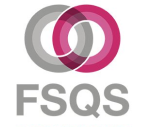We sometimes get asked, ‘should we have a background screening process?’.
The key is in understanding that a single ‘bad hire’ can result in reputational damage and or significant commercial loss. An effective and meaningful background screening process will reduce the likelihood of this occurring.
We also make employers aware of the fact that those who deliberately or maliciously target companies for fraud, often know which companies conduct proper and consistent background screening programs. These people will actively ‘test’ the hiring and recruitment process and when they come up against an effective checking process they normally withdraw and re-target another company who either does not conduct checks or conducts ad hoc or informal referencing.
Many of our clients comment on the value of PeopleCheck – this is often seen as an effective defence against targeted fraudsters at the pre-hire stage. Having a professional and robust background checking program sends a very strong and positive message to the marketplace, that as an employer, you are a company that that takes brand protection seriously and also understands the need for proper compliance.
We also believe that a good screening process should not simply be a ‘pass or fail tick-box exercise’ – it should always provide qualified judgment based on proven facts that enables smart and timely decision making.
We have included some case studies below in relation to what can be found within an effective background checking process. These all relate to ‘real cases’ that have all occurred within the past. We hope that you enjoy the reading and find them interesting and helpful:
The deceiver – case study #1
A candidate applied for a senior IT architect role with a large IT firm. This company specializes in next-generation cybersecurity, protecting people, data, and brands from advanced threats and compliance risks.
In the online application form, their CV and their LinkedIn profile the candidate indicated that they had worked for several years within number of ‘top secret’ departments within the US government. Enough detail about job title, location and project description was provided to appear credible but due to the secrecy of the positions, the candidate indicated that they could not provide documentary proof of contracts or names of line managers.
We engaged with the candidate explaining that we are aware of sensitive roles and that there was a compliance requirement for the prospective role that we verify seven years of activity, with at least referees or some form of payment or contract proof.
They reiterated that, previous employers had accepted the fact that they were an ex-government employee and also accepted that their vetting would have been to the highest level, based on the roles. We advised the client that it would be wise to establish some level of verification in relation to the government jobs and that in parallel a number of other checks should be conducted.
During the sanction checking process, the team discovered someone who matched the candidate’s profile who had been arrested for hacking offences. As analysis were conducted, it was established that the candidate had been in prison in the US for the same time period of time for which they had claimed that they had been employed by the US government.
Further checks revealed that the convictions were for hacking, fraud, and money laundering. Based on the terms of the time served in prison the candidate appears to have simply fabricated a CV that he hoped would never be challenged.
When the candidate was confronted with this information, they immediately withdrew from the process and told the client that they were no longer interested in the role.
The offender – case study #2
A candidate applied for a training role in a large consultancy firm. Their background had been mostly in supply teaching. They were a very charming and likeable person, who wanted to move from the public sector into the commercial training environment.
They told the client that they were holding a number of job offers and would accept the role if they could on-board them immediately. The client really liked the candidate and did not want to miss the opportunity of hiring them, so made an immediate offer and brought them onsite.
Their role was to oversee that training on a large project that was handling personal private data for schools, universities, and social care projects.
An HR audit discovered that they had not been checked and as such requested that they go through the process. The candidate refused saying that they had already been successful offered the job and had been in the position for over a month. After a further two months, they reluctantly accepted to engage in the checking process.
In the online form, and CV, they had provided many periods of employment which were verified. The verification process identified a gap of five months and based on further inquiry, another period of employment at a school was confirmed. This school refused however to provide any details of employment.
Criminal checks and a press analysis were conducted, and it was established that the candidate had been sacked from the school for misconduct and that he had been convicted for serious sexual offences involving children and animals. It was further revealed that he was on the sex offenders register and still serving a suspended sentence.
Upon finding this information the client realised the significant negative exposure from a compliance & integrity perspective. The matter was dealt with internally.
The forger – case study #3
We received a communication from a financial services client, who is an FCA regulated firm, that a very senior candidate was going to complete an application online. We were notified that they were applying for a senior compliance role and that they had previously worked at three of the major UK banks.
We were also informed that they ‘can be difficult’ and does not appear to see the value of being checked; particularly as they have been employed at such well known employers, who run background checks. We confirmed that we would conduct the checks in a sensitive manner and make the process as smooth as possible for the candidate.
The candidate provided six years of activity and this was checked and confirmed as correct. The only issue was that they appeared to be delaying in providing sufficient details to conduct a full criminal check. Instead, they provided a criminal certificate of unspent convictions and said that previous screening companies had always accepted this as a clear record.
We assured our client that a higher level of criminal check was required by the role and eventually the check was conducted. The result revealed that the candidate had served seven years in prison (albeit twelve years prior to applying for this specific position) for passport fraud and production of cloned credit cards.
The candidate withdrew from the process stating that the company would not be the right fit for them.
The embellisher – case study #4
A candidate applied for a project management role within a specialist biopharma consultancy firm. They only had three years of work experience, following an MBA at a top UK university and a first-class technical aerospace degree; also, at a top tier UK university.
They were immensely proud of their academic achievements which had been a significant factor in gaining previous employment as well as being offered a position with our client. The client has a very well-respected brand and tends to employ people based heavily on their academic achievements.
During the verification process, the relevant universities were initially unable to find the candidate on their graduation systems; The candidate were then asked by PeopleCheck whether they had been known by any other names during the periods of education.
The candidate said no and sent screenshots of their LinkedIn profile showing the logos of the universities and quite a lot of detail about the dates of study, the course titles and the classifications and awards achieved. They also provided 27 scanned pages of their attendance, course marks and proof of study; including a reference letter from their second-year tutor.
They said that his former employers, and screening companies, had been impressed by these and it had never been a problem. We reverted back to them and said that these would be good, however they did not show graduation. We also asked if they had retained any award certificates. The candidate said again that this had never been a problem and they felt that they had nothing to prove.
We again went back to the universities to double check. The first university established that the candidate had studied the bachelor’s degree but did not complete the course. It was further confirmed that there was neither record of attendance nor completion of the MBA program.
We advised the candidate of this and they said that they would speak with the prospective employer. The client fed back to us that the checks could be curtailed because the candidate had decided to take another job offer.
We closed the case and cross-checked the LinkedIn profile for the applicant. To our surprise, all traces of their education had been removed from the profile.
The debtor – case study #5
A large engineering company, with a hugely respected brand, requested that we conduct checks in relation to a new project finance manager. Their role was to manage procurement processes and oversee payment of key vendors.
Within the check it was established that the candidate had £64,000 of active county court judgements (CCJs). These were not declared during the application process. When the candidate was asked for further context behind the CCJs, they were surprised that these had flagged up and immediately withdrew from the process.
The client expressed sincere thanks for alerting them to these issues. As the CCJ’s may have been considered to be a significant point of financial stress for an individual who had relatively unsupervised access to significant internal funds.




